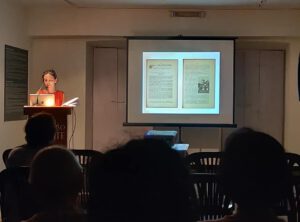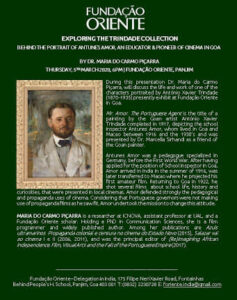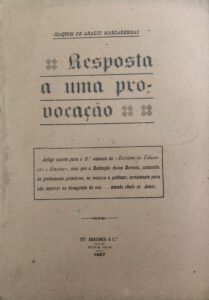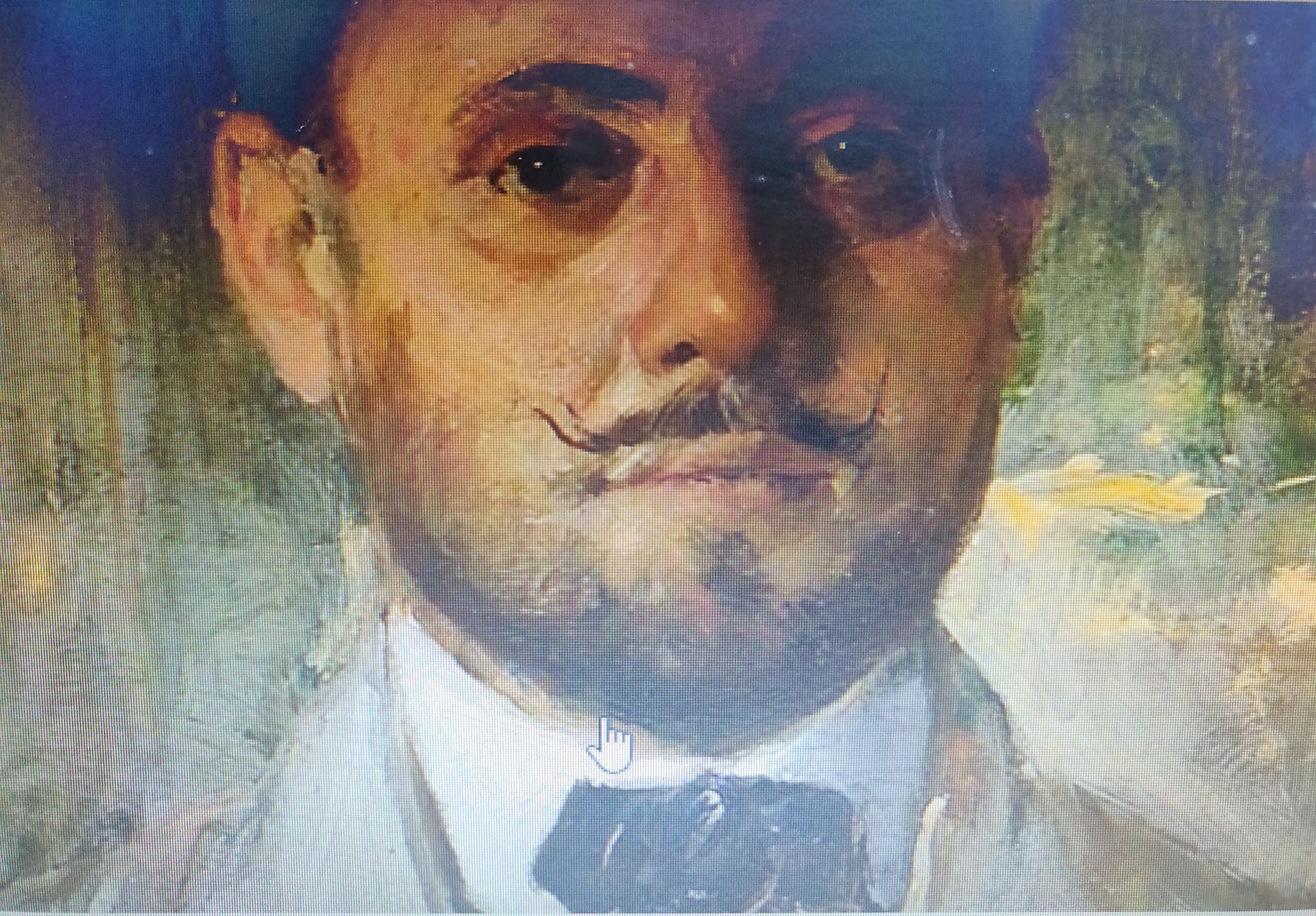All about Amor

Maria do Carmo Piçarra’s talk at Fundação Oriente, Panjim, was titled “Behind the Portrait of Antunes Amor, Educator and Pioneer of Cinema in Goa”. A researcher at Instituto de Comunicação da Nova (ICNOVA), Lisbon; assistant professor at University of the Arts, London (UAL); and a Fundação Oriente scholar, Piçarra holds a doctorate in Communication Sciences. She is a film programmer; author of several publications, among them Azuis Ultramarinos. Propaganda colonial e censura no cinema do Estado Novo (2015) and Salazar vai ao cinema (2006, 2011), and principal editor of (Re)Imagining African Independence. Film, Visual Arts and the Fall of the Portuguese Empire (2017).

Piçarra contextualised a painting titled “Mr. Amor. The Portuguese Agent” (1917) from the Trindade Collection on permanent display. That striking piece of art by the Bombay-based Goan painter António Xavier Trindade (1870-1935) was gifted to the Foundation by Dr Marcella Sirhandi, a friend and biographer of the artist.
Piçarra spoke of Amor’s cinematographic forays in Macau, where he screened his first amateur movie. She also mentioned the films he made about school life, history, and so on, while in Goa. A strong defender of the pedagogical and propagandist uses of cinema, Amor had several of his films shown in local halls.
The precious little I already knew of Manuel Antunes Amor (1881-1940) I had heard from my father a quarter of a century ago; I was now surprised to see him again! Trained in Germany in the early twentieth century, Amor (‘Love’, in Portuguese) was a self-opinionated gentleman whose tenures as primary school inspector in Goa (1916, 1922) were mired in controversy.

Finally, Piçarra's remark that Amor was particularly suspicious of lawyers reminded me of that high-profile polemic he had with Joaquim de Araújo Mascarenhas (1886-1946), a Goan legal eagle who doubled as Portuguese language teacher at Liceu Nacional de Nova Goa. A lethal combination it proved to be.
An article titled “O ensino primário e a incúria do Estado” ('Primary school education and State neglect') that Araújo Mascarenhas wrote for the maiden issue of the monthly Boletim de Educação e Ensino (April 1927) made Amor see red. He wrote a censorious rejoinder, “Sem autoridade nem razão” ('Devoid of authority or reason'), in the very next edition.
Araújo Mascarenhas dashed off a point-by-point rebuttal. The Boletim’s editorial board that comprised primary school teachers declined to publish it, possibly fearing the inspector's wrath. It led the redoubtable polemist to bring out a volume titled Resposta a uma provocação ('In Response to a Provocation').
Sadly, the Boletim folded up in August that year, but not before the long series of events had vitiated the atmosphere. No wonder the very gifted Mr Amor was someone many Goans loved to hate.
